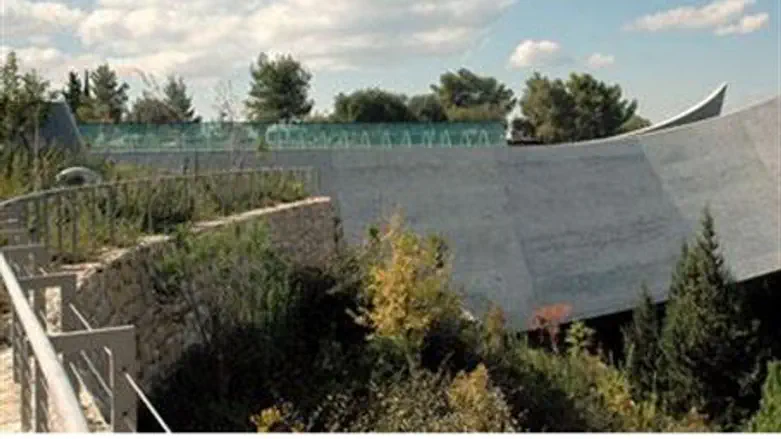
An organization in Tel Aviv that chronicles and records the history of Lithuanian Jews and their decimation in the Holocaust is likely to be sued by the Lithuanian government – over a scholarly study released over 13 years ago.
“It's strange that for 13 years this study never bothered them, and that now, all of the sudden, the Lithuanian government is worried about the honor of its murderous countrymen,” says Tel Aviv Attorney Yosef Melamed sarcastically in an interview with Arutz Sheva.. “And while I wouldn't necessarily choose to go to court to defend our accusations, I am more than prepared to do so.”
At issue is a study released over a decade ago by the organization Melamed directs, the Association of Lithuanian Jews in Israel. The study catalogs thousands of Lithuanian murderers of Jews – officials and ordinary citizens who did the “dirty work” for the Nazis, enthusiastically organizing and directing the destruction of Lithuanian Jewry, an effort, Melamed says grimly, that destroyed 96% of the country's pre-war Jewish population.
They began to murder Jews months before the Nazis arrived, claiming that the Jews were disloyal for preferring the hated Russians occupiers to the Nazis, hardly surprising if you were a Jew.
Melamed sent the study, called “Lithuania: Crime and Punishment,” to the Lithuanian Justice Minister, who did nothing with the report. No one was brought to trial.
Until several months ago, that is, when Lithuania sought an investigation into the Association, with the intent of preparing a case against it for “defamation of character” against nine individuals named in the report who in recent years have been named Lithuanian “national heroes.”
One of those named, for example, is Juozas Lukša, who is celebrated in Lithuania as a fighter against Communism, escaping through the Iron Curtain to the West in 1947 and seeking to raise consciousness against the Soviet occupation of the country. In 1950 he secretly returned to Lithuania, and was killed by the Soviets in 1951.
While in Western Europe, Lukša wrote a book called Fighters for Freedom, depicting the suffering of the Lithuanians under the Soviet thumb. Less well known in the West, however, was Lukša's role in persecuting and murdering Jews, the Association says. In 1941, for example, Lukša was an officer in the Lithuanian army and participated in a pogrom in the city of Kaunas, helping fellow murderer Viktoras Vitkauskas murder Rabbi Zalman Ossovski, beheading him and placing his head in a window to show off their accomplishment.
“The others are just as bad. We have witnesses, documentation, and whatever else is necessary to defend these charges in court,” says Melamed, 86, himself a survivor who managed to escape the clutches of the Nazis – and the Lithuanians – fighting both of them as a partisan. “In Lithuania, the people enthusiastically took on the task of murdering the Jews, saving the Nazis the trouble,” he says. “In general, the Lithuanians were considered the cruelest nationality during the war, far worse than the Poles or even the Ukranians.”
Oddly, it wasn't the Lithuanian Justice Ministry that physically tried to serve the Association with papers – it was the Justice Ministry of the State of Israel. “As part of international agreements, the Lithuanians asked the Israelis to open an investigation into their case, and demanded from us documentation and information.”
Which is very hypocritical of the Lithuanians, Melamed says. “During all the years we have been researching the Lithuanian massacre of Jews, the government there has never willingly turned over even one document.”
Now, 13 years later, “Lithuania has decided that the time has come to 'clear' the names of its 'heroes', in order to propagate its image as a staunch defender of Western values against the Communists. But the facts are the facts, and no matter how much 'cleaning up' the Lithuanians do, they cannot change the testimony of those who saw with their own eyes how their countrymen – including these 'heroes' – participated enthusiastically in the destruction of Lithuanian Jewry.”
Melamed is ready for a court case, he says – as long as it takes place in Israel. “I cannot go to Lithuania,” he says. “If I go there I won't come back alive. That's the way they do things there.”